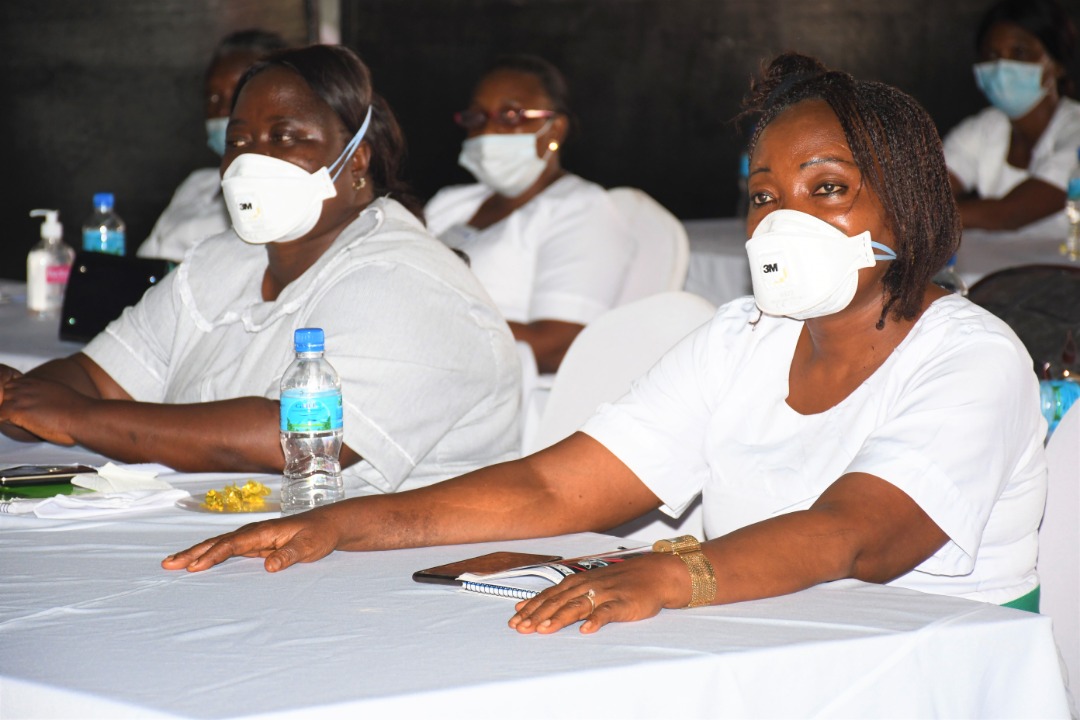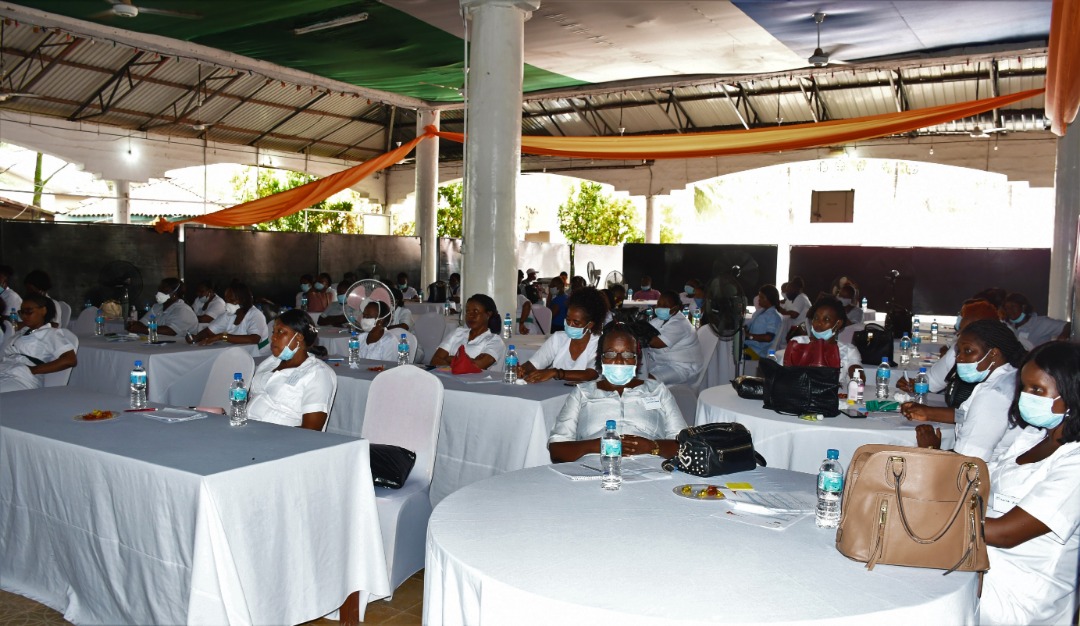By Janet A Sesay
World Vision, an international non-governmental organisation, has been training nurses from different hospitals on Infection Prevention and Control (IPC).
The training, launched yesterday at the Family Kingdom in Aberdeen Community in Freetown, aims at ensuring safety of health workers in the execution of their duties in hospitals and health centres.
The IPC training would also go a long way in helping nurses cut off the chain of transmission of Corona Virus Disease aka Covid-19.
World Vision Country Manager was represented by the organisation’s Finance and Support Service Director, Elvis Van-Dalen.
In his address, Van Dalen explains that Covid-19 crisis is worsening complex issues confronting vulnerable children and communities across Africa prior to the outbreak of the deadly virus.
It is towards this direction, he says World Vision is making effort to strengthen its response capacity in several countries across the continent.
“World Vision is scaling up prevention and response work in 26 countries in Africa and also working in collaboration with local authorities, front line health workers, and academic institutions, faith leaders and communities and local non-governmental Organisations,” World Vision Finance Director pointed out.
The goal of World Vision, he says, is to limit the spread of Covid-19 and reduce its impact on vulnerable children and families in Sierra Leone.

The organisation hopes to achieve such an all-important objective by strengthening health systems and improving the capacity of health professionals in the country.
The Finance Director made reference to the Ebola epidemic which, he said, claimed the lives of many of their colleagues between 2014 and 2016.
“Such death toll should not happen during this pandemic,” he assured.
World Vision thus believes that the objective can be achieved if the transmission of Covid-19 is prevented in health care facilities by ensuring screening and triage for early recognition of patients with suspected Covid- 19, applying standard precaution for all patients, implementing administrative controls and providing adequate training for health workers.
Achieving IPC minimum requirements as well as more robust and comprehensive IPC programmes, Van Dalen went on, formed the basis on which World Vision had been supporting Ministry of Health and Sanitation (MoHS) with IPC materials 400 health facilities in six districts in Sierra Leone.
1,600 health workers, he said, were also supported with personal protective equipment as well as support in the form of training 600 health care workers.

“When the training is completed in the Western Area, it will increase the figure to 700 health workers that have been trained on Covid-19 IPC,” he assured.
World Vision Finance Director concludes his address by pledging his organisation’s continued support to MoHS until Covid-19 is defeated.
Chief Medical Officer at MoHS, Reverend Dr. Thomas Samba represented the ministry at the launching ceremony of the two-day training of health personnel.
During the launching, Dr Samba expressed MoHS’ determination to partner with World Vision in its passion for health care service delivery in Sierra Leone.
“IPC is fundamental to medical practice and health workers minus IPC practice is dangerous,” Dr Samba cautioned.
Dr Samba also warns that doctors and nurses who fail to observe IPC measures expose themselves to Covid-19 noting that it endangers their lives and families as well as patients.
Dr Samba says IPC protection is in three folds: It helps the providers of health service who are the health workers, the patients and the public.
“If IPC is practised everywhere, it would help stop the spread of Covid-19,” he said.
Dr. Samba is of the conviction that quality in hospitals would drop if IPC measures are not practised.
World Vision has always provided support to the government in normal and crisis periodS in Sierra Leone.
The organisation has greatly helped the people of Sierra Leone through livelihood support and other humanitarian interventions for which it is well reputed.
Quite recently, World Vision supported the aged with financial assistance in some parts of the country.
In Bo district, the organisation provides assistance in the form of education, agriculture and most importantly assistance to victims of rape and sexual penetration.
Its contribution to health service and to the fight against sexual violence is much more visible in Serabu and Bumpeh communities in Bumpeh Ngao Chiefdom, Bo district.
Its work in the campaign against sexual violence in that part of the country is well noted.

